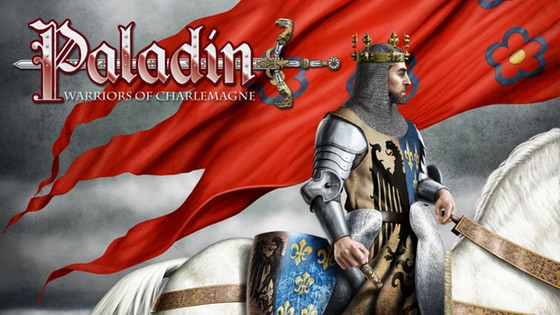Update!
over 6 years ago
– Sun, Aug 20, 2017 at 09:09:56 AM
Hello folks!
We've unlocked the silk bookmark! The project is nearing it's run, but the Nocturnal Media team is going to be at GenCon! Come by and say hi, we'll be promoting PALADIN!
The Esoteric Order of Roleplayers ran a session of PALADIN and recorded it!
You can check it out here: http://esoteric-rp.blogspot.com/2017/08/paladin-special-kickstarter-preview.html
Alan (our project manager) is travelling to GenCon and a family vacation through the 22nd, so we'll be slow to respond and update! But never fear, we're watching and we can't wait to see the next stretch goals topple!
- The Nocturnal Media Team!
Some of the key mechanics of PENDRAGON (and therefore PALADIN)!
over 6 years ago
– Fri, Aug 18, 2017 at 08:30:37 PM
Hi folks!
As promised, here's your update on how to play Pendragon. Obviously this is not a detailed guide, but it should serve as an overview.
PENDRAGON is a game with a storied history, and you can find various resources around the internet to help push you along and guide you through it. If you have questions, you shouldn't hesitate to ask.
THE BASE MECHANICS
The core roll you use in PENDRAGON for a Check is a single d20. To do a Check, you roll the d20, and if the result is lower than your Rating in that piece of information (Skill, Attribute, Trait, Passion), you succeed! If it's equal, you've got a critical success!
So, if loyal Sir Roland is engaged in a sword fight, he'd roll a d20 against his Sword skill of 15!
- If the d20 shows a 14 or less, Roland has succeeded
- If it's a 15, Roland has achieved a critical
- If it's a 16+, Roland has failed!
Damage is deal via D6s in multiple, and you total them to determine your final damage to opponents you strike. For example: A 4d6 (average) damage would total between 4 and 24.
WHAT MAKES UP A CHARACTER?
Characters are composed of a variety of mechanical components, which fall into the following categories:
-
Attributes - Attributes are "statistics" that form the backbone of a character's physical abilities. Attributes are: Strength, Dexterity, Size, Constitution and Appearance.
-
Traits - Traits are dual elements that form up the Personality of a Knight. They are opposed and form a balance (always totaling 20 between the two). When a character has a high trait (usually 16+) it impacts their ability to behave in certain ways, and they align themselves with that Trait in their actions and dealings. If they wish to break with one of their defining Traits, they have to make a Check against that Trait, with success requiring them to behave in that manner! There are a lot of Traits, so we can't list them all here!
-
Passions - Passions are driving motivations and feelings that impact how your Knight behaves toward a particular thing or ideal, such as Loyalty towards your Lord, Honor or Love.
-
Skills - Skills are simply that, a rating of how Skilled your Knight is in a particular task.
THE PHASES
PENDRAGON plays in two phases: The Adventuring Phase and The Winter Phase. Once of the core elements of Pendragon is that each session is "1 year" in the lives of the characters, starting with a Courtly Spring Season, and ending with a Winter Phase where characters upkeep and manage their manors, lands and selves, growing, learning and improving.
PALADIN holds true to that. This format of "each session = one year" allows for storytelling that travels through generations, with characters aging, and acquiring Glory, wealth and land to pass on to their children who will take up the Player Knight mantle and adventure forth, a generation later!
There's a more than that, and it's a very high-level break down.
What else do you wish to know about the mechanic aspects of PENDRAGON (and PALADIN)?




